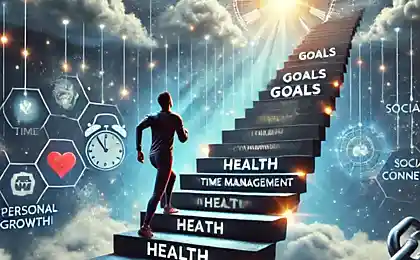186
8 Ways to Develop Resilient Thinking and Why You Need It

Introduction
Resilient thinking helps you stay optimistic in difficult times, adapt to change and not lose yourself in chaos. This skill is necessary for anyone who wants to overcome crises with minimal losses and move forward.
1. Accept change as part of your life.
Life is unpredictable, but resistance to change increases stress. Learn to see opportunities where others see problems.
2. Develop flexibility of thinking
Do not get attached to rigid installations. The ability to adapt to circumstances makes you stronger.

3. Strengthen the internal locus of control
People with resilient thinking understand that much depends on their decisions and efforts, not on external circumstances.
4. Use Positive Self-Programming
Replace internal dialogue with criticism with support. For example, instead of “I can’t do it,” say to yourself, “I’ll find a way.”
5. Learn to see lessons in difficulties
Any problem brings valuable experience. Analyze difficult situations and make sense of them.
6. Practice gratitude.
Focusing on what you already have helps you overcome fears and stay positive.
7. Develop emotional resilience
The ability to manage your emotions and recover from failure is a key skill of resilient people.
8. Surround yourself with a supportive community
People who share your values and inspire you will make it easier for you to go through challenges.
Conclusion
Resilient thinking is not an innate gift, but a skill that can be developed. By following these principles, you will be able to maintain balance even in the most difficult situations.

Glossary
- Resilience Ability to adapt to difficulties and recover from stress.
- Location of control Belief about who controls events in life: the person (internal) or external factors (external).
- Emotional resilience The ability to manage your emotions and stay calm in difficult situations.
From folklore to pop music: How music has evolved through the centuries
9 Thinking Models That Make You Attractive























